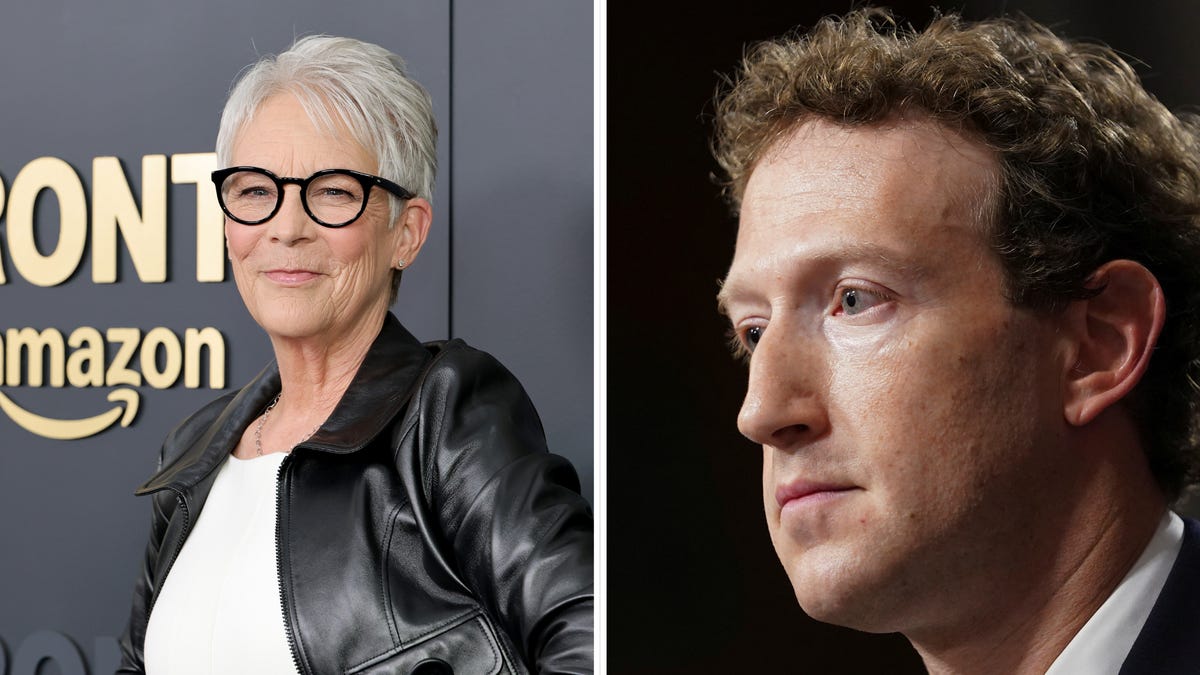Margo Martindale reveals why Jamie Lee Curtis called for ‘The Sticky’
Margo Martindale chats with USA TODAY’s Ralphie Aversa about working with Jamie Lee Curtis for Amazon Prime Video’s “The Sticky.”
Jamie Lee Curtis is taking her feud with Mark Zuckerberg to the court of public opinion.
In a social media post May 12, Curtis called out the Meta founder for failing to take down an AI-powered commercial on one of the company’s platforms that she claims used her likeness without permission.
“Hi. We have never met,” Curtis wrote alongside a screenshot of her unsuccessful attempt to message Zuckerberg on Instagram. “My name is Jamie Lee Curtis and I have gone through every proper channel to ask you and your team to take down this totally AI fake commercial for (something) … that I didn’t authorize, agree to or endorse,” she wrote.
“I tried to DM you and slide on in, but you don’t follow me so I’ve had to take to the public instaverse to try to reach you,” she continued.
“If I have a brand, besides being an actor and author and advocate, it is that I am known for telling the truth and saying it like it is and for having integrity,” Curtis wrote, revealing the commercial misused photos from an interview she had done with MSNBC’s Stephanie Ruhle in the aftermath of the wildfires that ravaged the greater Los Angeles area earlier this year.
“This (MIS)use of my images,” Curtis wrote, “diminishes my opportunities to speak my truth. I’ve been told that if I ask you directly, maybe you will encourage your team to police it and remove it. I long ago deleted Twitter, so this is the only way I can think of reaching you.”
In a follow-up to her public request, Curtis commented just two hours after the post went live that the video had been taken down.
“IT WORKED! YAY INTERNET!” she wrote. “SHAME HAS IT’S VALUE! THANKS ALL WHO CHIMED IN AND HELPED RECTIFY!”
Curtis’ outcry comes as a growing number of celebrities speak out against the unauthorized use of their likeness for AI-generated photos or videos. The technology is trained on real-life content, but can then reproduce it in an altered form based on a user’s request.
Sir David Attenborough recently said he was “profoundly disturbed” by the use of an AI-generated dupe of his voice, and last year Tom Hanks warned fans that a company was using an AI version of him to promote a dental plan.
In May 2024, Scarlett Johansson also voiced concern, taking on the AI giant Sam Altman and his company OpenAI, alleging its ChatGPT product had copied her voice without consent.

Leave a Reply